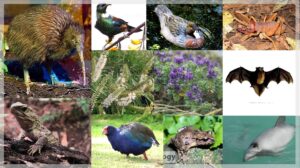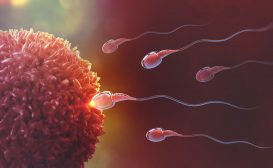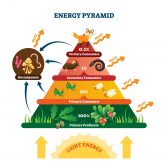Definition
noun, plural: peptidoglycans
(1) A glycan (a polysaccharide) attached to short cross-linked oligopeptides in the cell wall of eubacteria
(2) A crystal lattice structure in the bacterial cell wall that is made up of linear chains of alternating amino sugars, namely N-acetylglucosamine and N-acetylmuramic acid, and short peptide chains of three to five amino acids (attached to the N-acetylmuramic acid). The peptide chains form cross-links between them resulting in a 3D mesh-like structure.
(3) A polymer that serves a structural role in the bacterial cell wall, giving structural strength, as well as counteracting the osmotic pressure of the cytoplasm. It is also involved in binary fission during bacterial cell reproduction.
Supplement
The peptidoglycan layer of Gram-positive bacteria is substantially thicker than that of Gram-negative bacteria. Hence, Gram-positive bacteria are more susceptible to certain antimicrobial agents like penicillin and other β-lactam antibiotics that work by inhibiting the formation of peptidoglycan cross-links thereby weakening their cell wall.
Synonym: mucopeptide, murein.
See also: cell wall (bacteria).
Dictionary > Peptidoglycan
You will also like...

Running Water Freshwater Community Factors
This tutorial noted some of the physical and chemical factors that provide the framework of a running water community in..

New Zealand’s Biodiversity
Find out more about New Zealand's unique biodiversity by exploring a range of different ecosystems and the key role of s..

Human Reproduction and Fertilization
For human species to obviate extinction, reproductive mature adults should be producing viable offspring in order to con..

Movement of Molecules Across Cell Membranes
Molecules move within the cell or from one cell to another through different strategies. Transport may be in the form of..

Freshwater Community Energy Relationships – Producers & Consumers
This tutorial looks at the relationship between organisms. It also explores how energy is passed on in the food chain an..

Leaves
Leaves are the major photosynthetic organ of a plant. Apart from that, they are also crucial to water movement. In this ..

